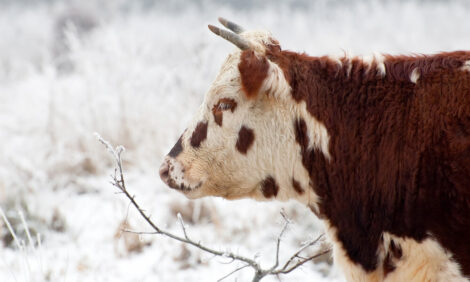



New Simplified Beef, Sheep Meat Inspection Conditions Introduced
UK - The roll out of a new list of post-mortem rejection conditions has begun in sheep and cattle abattoirs in England.The rationalised rejection conditions (conditions which result in all or part of a carcase being rejected for human consumption) are being introduced as the result of a project involving AHDB Beef & Lamb and the Food Standards Agency (FSA).
The implementation of the rationalised conditions is the first milestone towards improving efficiency and efficacy of the farm-to-fork information cycle, with the aim of maintaining the health and welfare of livestock, safeguarding UK consumers and protecting the UK’s reputation in relation to exports. The changes follow industry consultation and successful trials in a number of abattoirs across the country.
One of the features that is being implemented as part of this project is the introduction of a standardised screen layout across sheep and cattle abattoirs to facilitate the accurate recording of data.
This is a benefit for FSA Meat Hygiene Inspectors who work across several plants, as it means that the same condition can be found in the same place on the screen, irrespective of which plant they are working in.
Speaking about the changes, Peter Boyes, Technical Director of Dovecote Park, said: “Dovecote Park welcomes the new post-mortem cattle conditions as they convey a much simpler and standardised set of disorders that is more useful to the modern farmer.
“Standardising the conditions across the country will mean that wherever cattle are slaughtered there will be a consistency in the information recorded by meat inspectors. This in turn will lead to clearer information to farmers to understand what treatment to give their herds in the future and also what actions have worked well.
“This information has been available to our farmers for many years now and have already seen benefits in their own health plans. We feel that the standardisation and availability of these post-mortem conditions can only help improve the British beef cattle herd.”
TheCattleSite News Desk


